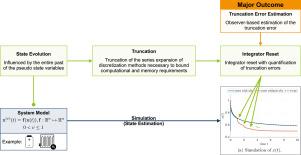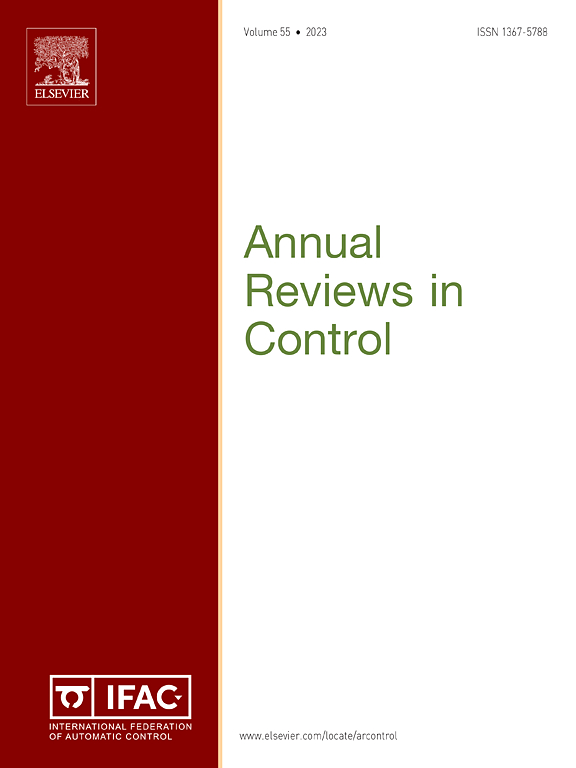分数阶动态模型伪状态估计的有限记忆观测器纠错方法
IF 10.7
2区 计算机科学
Q1 AUTOMATION & CONTROL SYSTEMS
引用次数: 0
摘要
近年来,分数系统模型在解释以长期记忆效应为特征的非标准动力学方面变得越来越重要。一个重要的应用领域是电池和燃料电池等电化学能量转换器的建模、仿真和控制设计。虽然这种模型通常能够捕获(无限视界)记忆属性,但如果不采取适当的对策,则可能由于相同的效应导致内存和计算时间的持续增加而使数值评估复杂化。在发生周期性积分器重置的(伪)状态估计过程中尤其如此。这样的积分器重置作为对抗内存需求和计算时间增加的对策是必要的。为满足实时性的严格要求,将两者绑定是必要的。此外,当对具有有限不确定性的系统使用预测校正状态估计器时,会发生这种重置。本文全面回顾了基于观测器的方法,用于量化和增强上述截断误差。给出了锂离子电池充放电简化分数阶模型的伪状态估计示例性结果。本文章由计算机程序翻译,如有差异,请以英文原文为准。

Observer-based error correction in finite memory approaches for pseudo state estimation of fractional dynamic models
Fractional system models have gained in importance during recent years to account for non-standard dynamics that are characterized by long-term memory effects. An important field of application is the modeling, simulation, and control design for electrochemical energy converters such as batteries and fuel cells. Although such models are generally capable to capture (infinite horizon) memory properties, the numerical evaluation may be complicated by the same effect leading to a continuous increase in memory and computing time if no appropriate countermeasures are taken. This is especially true in (pseudo) state estimation procedures in which a periodic integrator reset takes place. Such integrator resets become necessary as a countermeasure against the increase of memory requirements and computing times. Bounding both is necessary to meet the strict requirements of real-time applicability. Additionally, such resets occur when predictor–corrector state estimators are employed for systems with bounded uncertainty. This article provides a thorough review of observer-based methods for the quantification and enhancement of the aforementioned truncation errors. Exemplary results are shown for the pseudo state estimation of a simplified fractional model of charging and discharging of lithium-ion batteries.
求助全文
通过发布文献求助,成功后即可免费获取论文全文。
去求助
来源期刊

Annual Reviews in Control
工程技术-自动化与控制系统
CiteScore
19.00
自引率
2.10%
发文量
53
审稿时长
36 days
期刊介绍:
The field of Control is changing very fast now with technology-driven “societal grand challenges” and with the deployment of new digital technologies. The aim of Annual Reviews in Control is to provide comprehensive and visionary views of the field of Control, by publishing the following types of review articles:
Survey Article: Review papers on main methodologies or technical advances adding considerable technical value to the state of the art. Note that papers which purely rely on mechanistic searches and lack comprehensive analysis providing a clear contribution to the field will be rejected.
Vision Article: Cutting-edge and emerging topics with visionary perspective on the future of the field or how it will bridge multiple disciplines, and
Tutorial research Article: Fundamental guides for future studies.
 求助内容:
求助内容: 应助结果提醒方式:
应助结果提醒方式:


